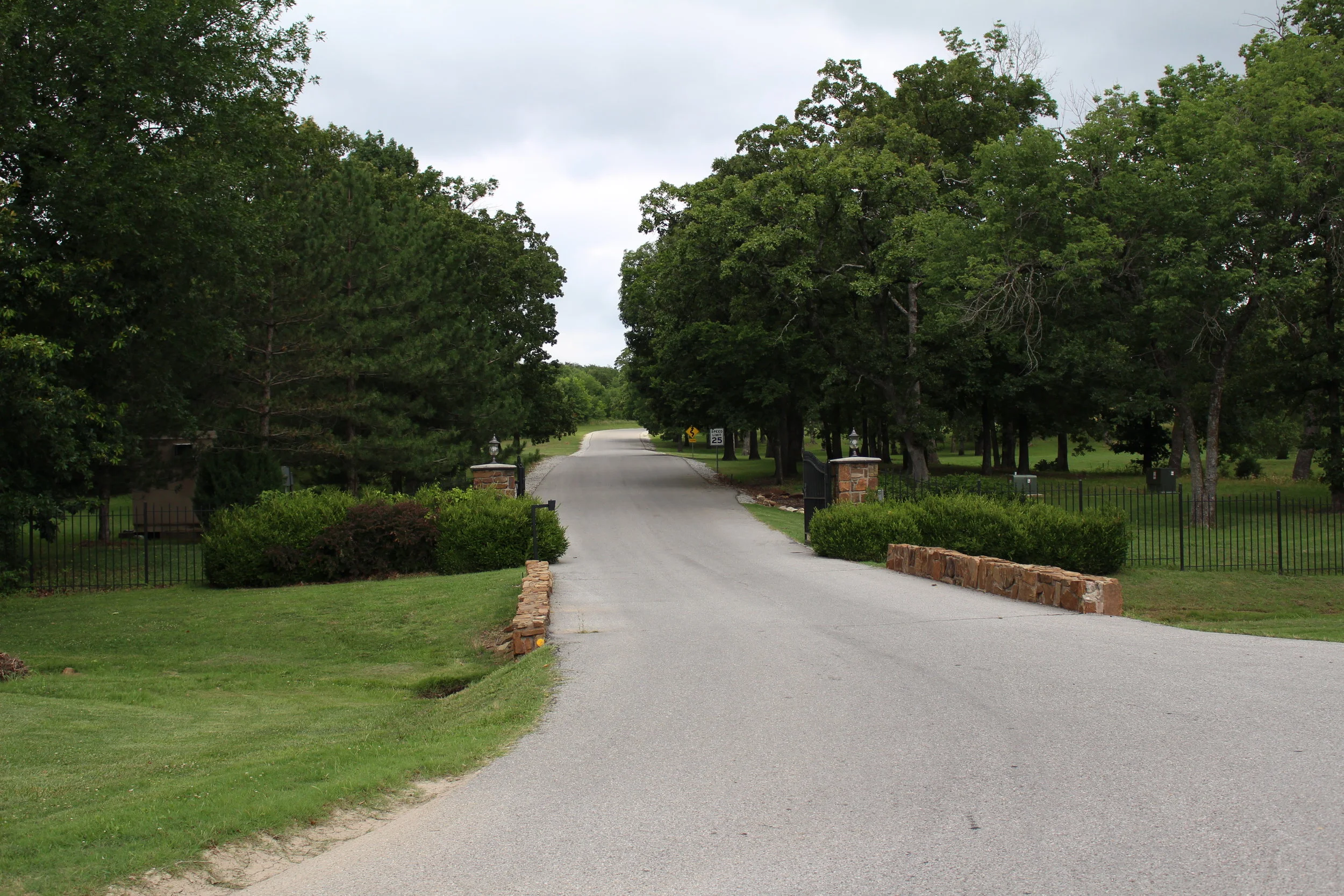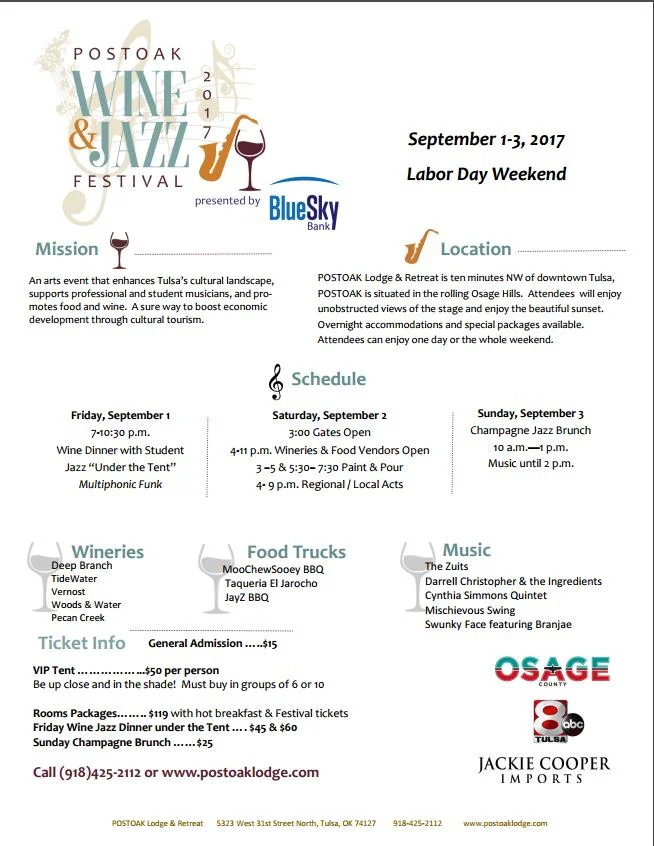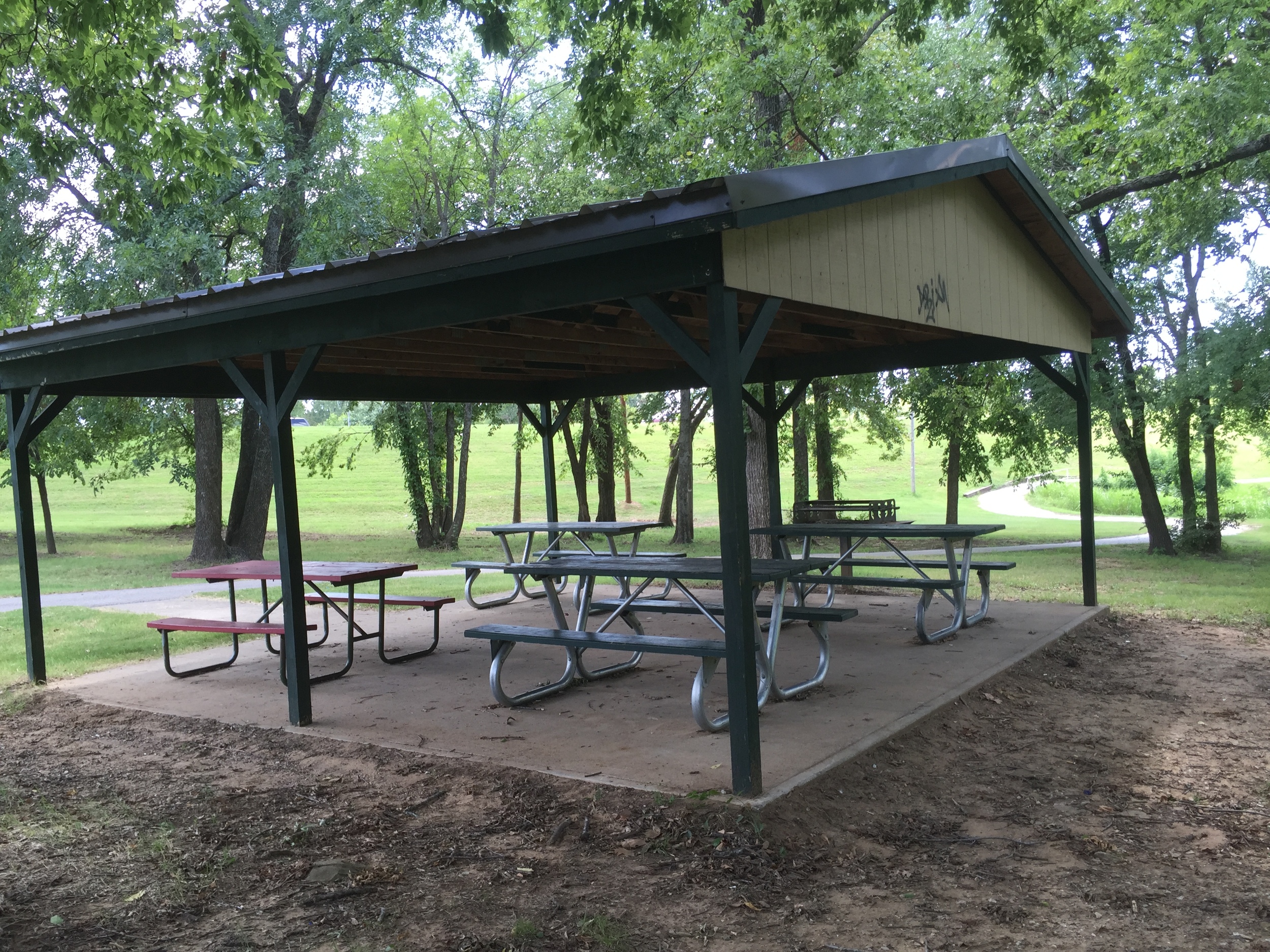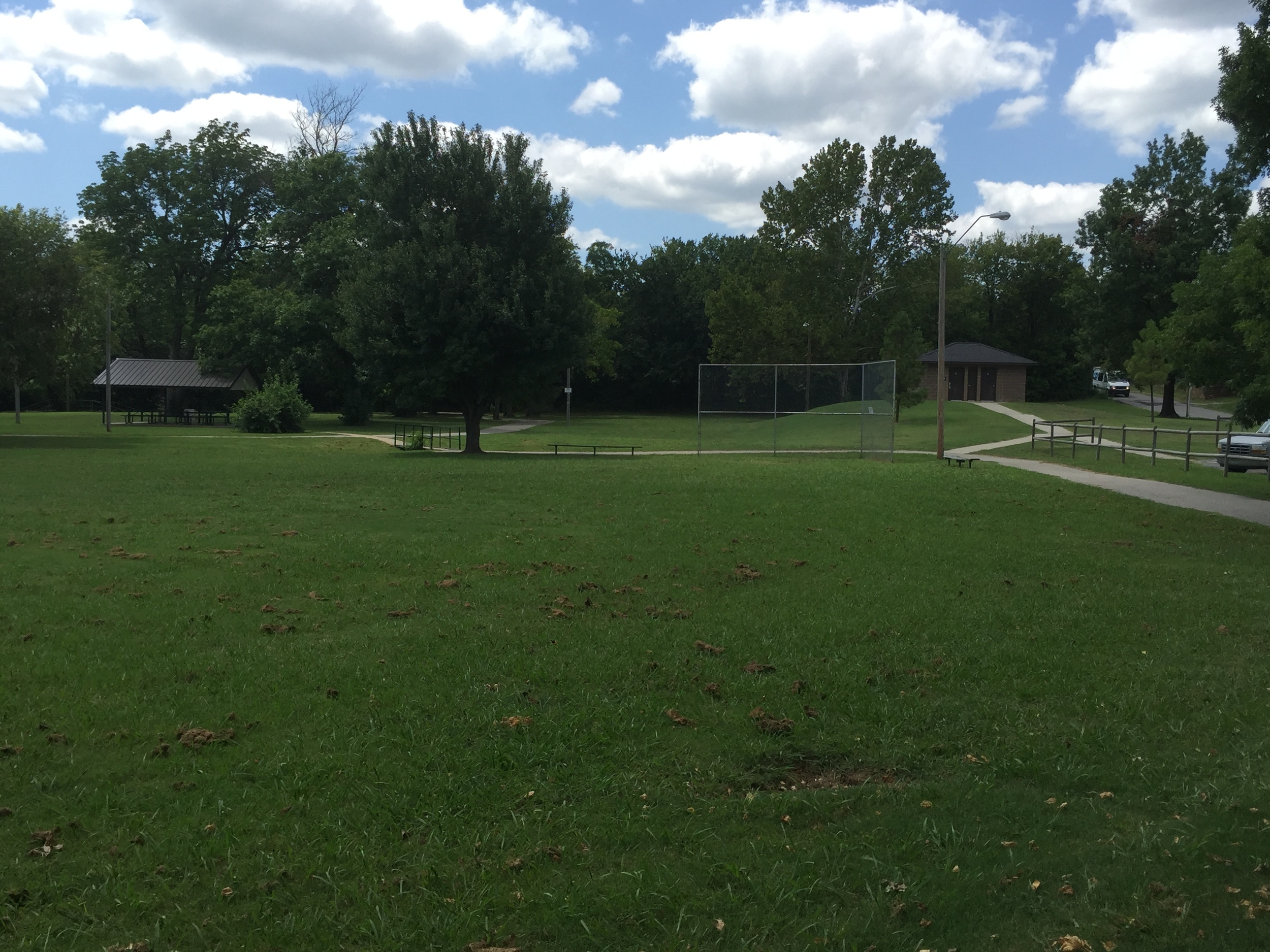POSTOAK Lodge & Retreat to hold Wine & Jazz Festival on Labor Day Weekend
/





In recognition of Jazz Appreciation Month, POSTOAK Lodge & Retreat is thrilled to announce a return for the third year of the POSTOAK Wine & Jazz Festival. Presented by Blue Sky Bank, this year’s festival will be held Labor Day weekend, Sept. 1-3.
“The Wine & Jazz Festival continues to provide a unique experience for residents and travelers in northeast Oklahoma.” said Trisha Kerkstra, general manager at POSTOAK Lodge & Retreat. “Last year, we added a wine/jazz dinner on Friday night and a champagne jazz brunch on Sunday. They were so well received, we decided to add a few more surprises for this year. Thanks to our sponsors and the fabulous growing jazz talent in Tulsa, we are delighted to provide performance opportunities for professional and student musicians.”
Headlining the event is the lively 17-piece Swunky Face Big Band Orchestra, featuring acclaimed Tulsa vocalist Branjae.
“With Branjae’s captivating stage persona, coupled with the swing sound of Swunky Face, we’re confident festival goers will find it hard to stay in their lawn chairs,” said Kerkstra. “It promises to be a spirited and entertaining festival all around.”
The Wine & Jazz Festival is supported by VisitTulsa, the city’s convention and visitor’s bureau housed at the Tulsa Regional Chamber, as well as the Tulsa Office of Film, Music, Arts & Culture (Tulsa FMAC).
“In addition to attracting national events to the Tulsa area, we also help cultivate and develop promising home-grown attractions,” said Ray Hoyt, president of VisitTulsa and Tulsa FMAC. “The POSTOAK Wine & Jazz Festival has already proven to be a runaway success, and we’re excited about the potential this event has to draw visitors from across the region.”
The Zuits, a high-energy swing, jazz and funk band, will kick off the music Saturday at 4 p.m. Also performing is bluesy jazz band Darrell Christopher and the Ingredients, the expressive Cynthia Simmons Quintet, and the hot jazz of Mischievous Swing, reminiscent of the sounds of French cafes and Gypsy camps.
Tickets are $15 each, with free admission for those 17 and under. Attendees will be able to purchase wine from some of Oklahoma’s best wineries and enjoy a variety of local food trucks. Additional events include a wine and jazz dinner Friday night and a champagne brunch Sunday morning.
Tickets and a variety of packages, including accommodations and meals, are on sale now through POSTOAK Lodge & Retreat’s website or by calling 918-425-2112.
Nestled in the Osage Hills, POSTOAK Lodge & Retreat is located ten minutes from downtown Tulsa. For more information on POSTOAK, visit postoaklodge.com.



























